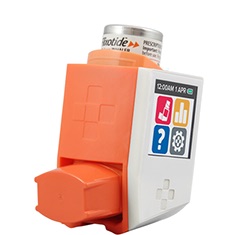 Adherium, the Australian connected inhaler company that partnered with AstraZeneca earlier this summer, has released data from three small studies of the company's Smartinhaler system. Data from the studies, all of which involved children and adolescents, indicate a 144 percent increase in adherence for patients using the connected devices, a 14.9 percent increase in lung function and a 37 percent reduction in oral steroid usage, as well as qualitative insights about patient reactions to the form factor.
Adherium, the Australian connected inhaler company that partnered with AstraZeneca earlier this summer, has released data from three small studies of the company's Smartinhaler system. Data from the studies, all of which involved children and adolescents, indicate a 144 percent increase in adherence for patients using the connected devices, a 14.9 percent increase in lung function and a 37 percent reduction in oral steroid usage, as well as qualitative insights about patient reactions to the form factor.
“Asthma can be a debilitating condition and independent studies have consistently demonstrated that our Smartinhaler platform can transform the lives of children," Adherium CEO Garth Sutherland said in a statement. "These three studies are a valuable contribution to the growing bank of clinical outcomes data which supports the use of Smartinhaler medication sensors in improving health outcomes and medication adherence in chronic respiratory disease."
The largest study, with 90 participants, is a still-ongoing trial in Sheffield, England that reported interim results. So far, that trial has found a 144 percent increase in adherence in the group using Adherium's technology, which includes feedback and reminder alarms, compared with the control group. This is also the study that produced a 37 percent decrease in the number of oral steroids required by patients, which should correspond to a similar decrease in the number of asthma exasperation events, and a 14.9 percent increase in lung function.
The next largest study, with 50 participants, demonstrated significant increases in lung function and decreases in lung inflammation in patients who used the device. Those patients also scored higher on a questionnaire designed to evaluate quality of life.
The final study was more of a focus group of seven adolescents, who were interviewed about the smart inhaler form factor. Participants used the device for a month and completed questionnaires at the beginning, middle, and end of the trial. Researchers found "significantly positive results towards having inhaler use monitored and shared with family or healthcare providers" and "enthusiasm for utilizing the device to prove their independence and demonstrate responsibility for their asthma", though some participants were still concerned about the social stigma of using an inhaler in front of their peers.













